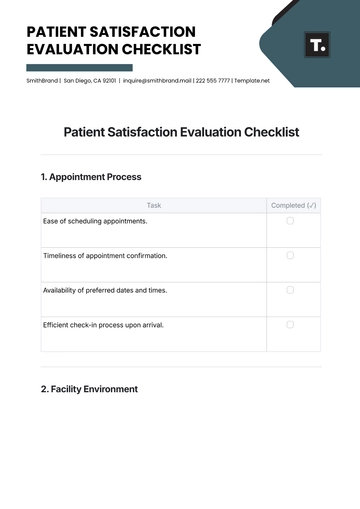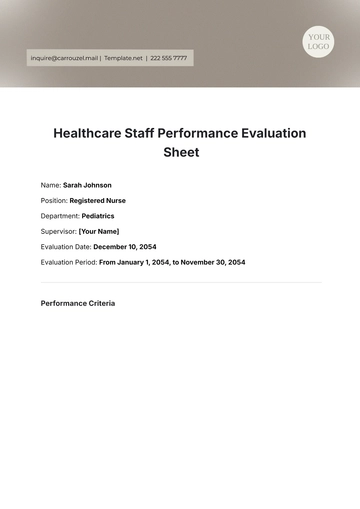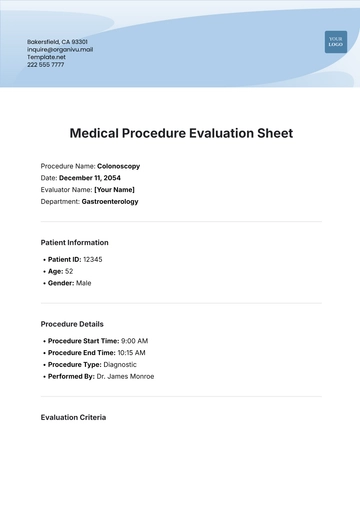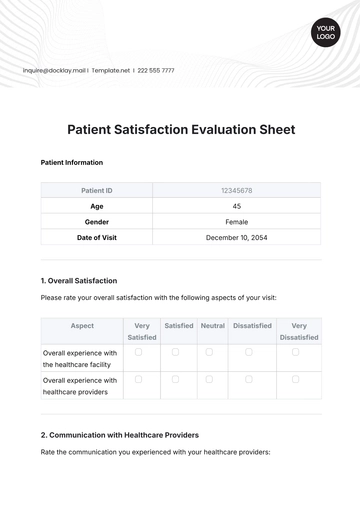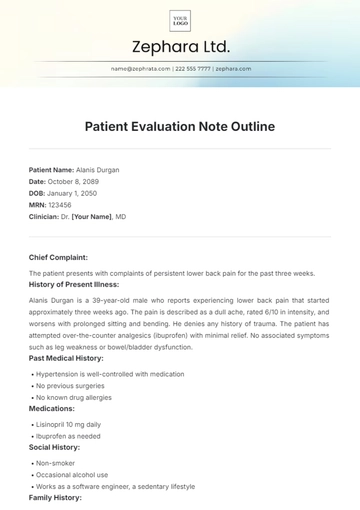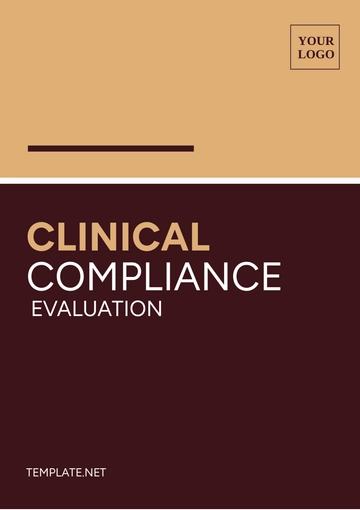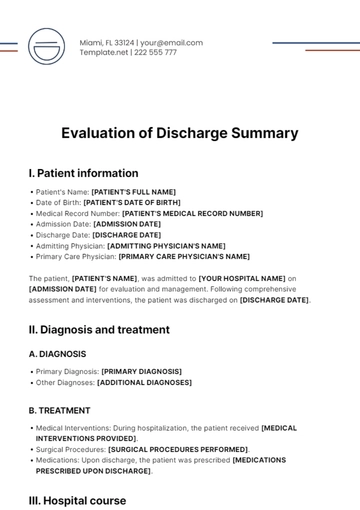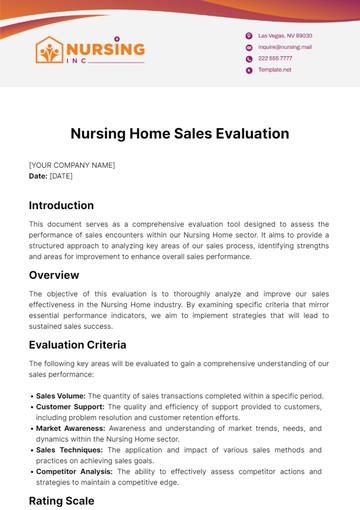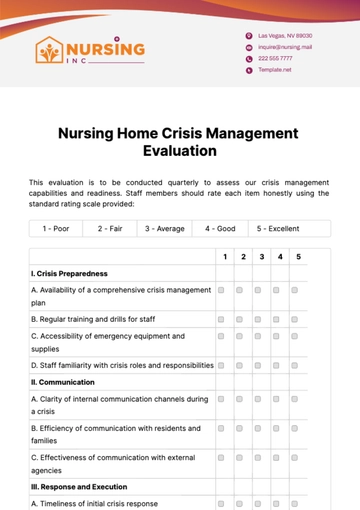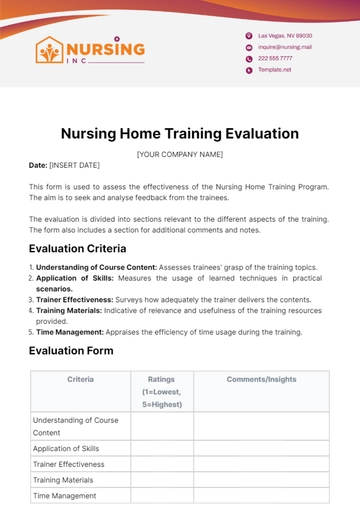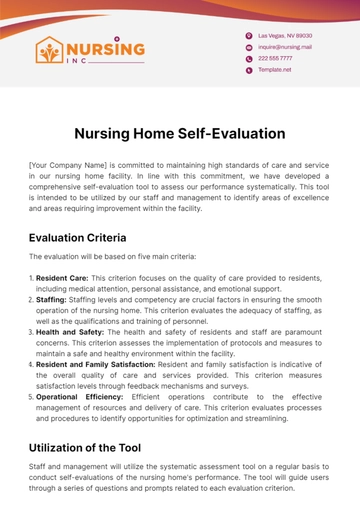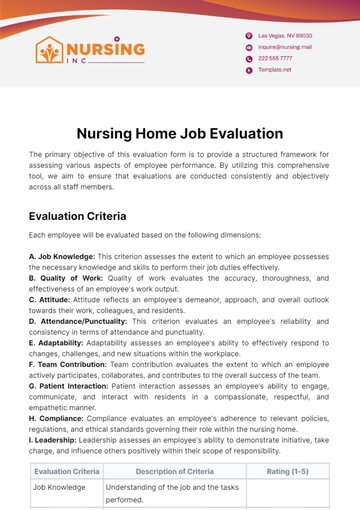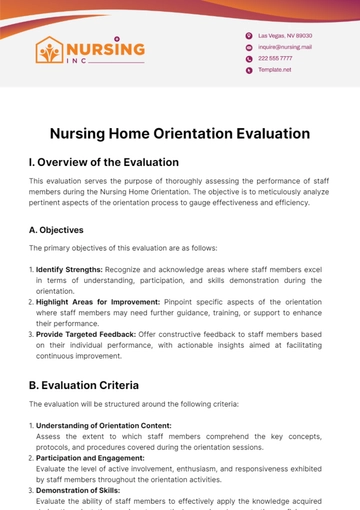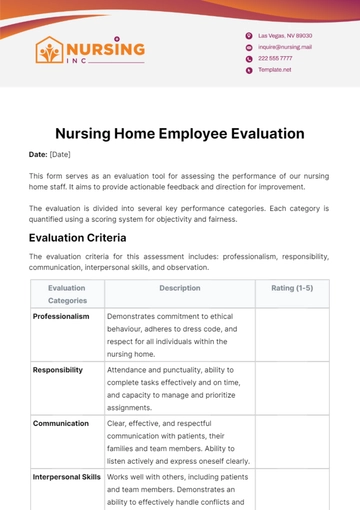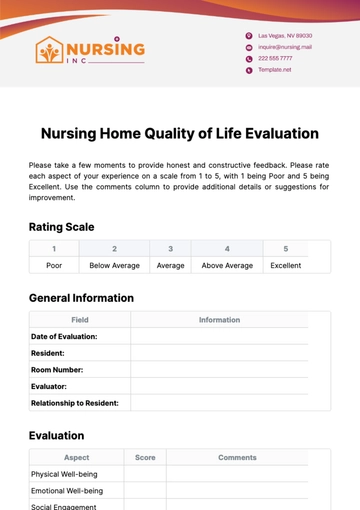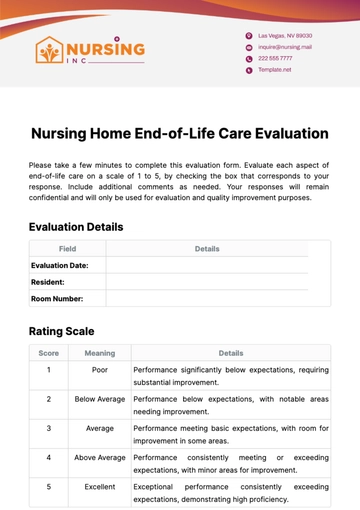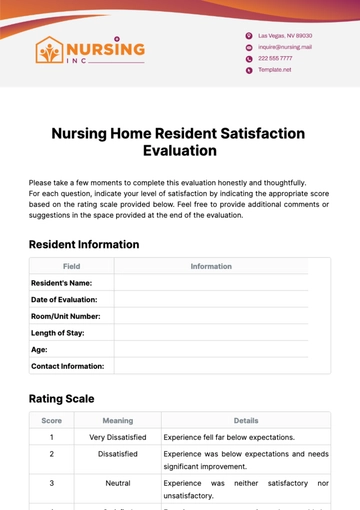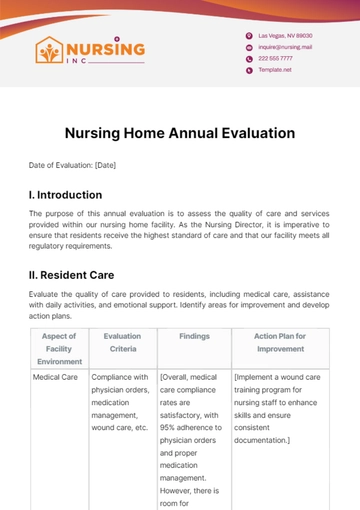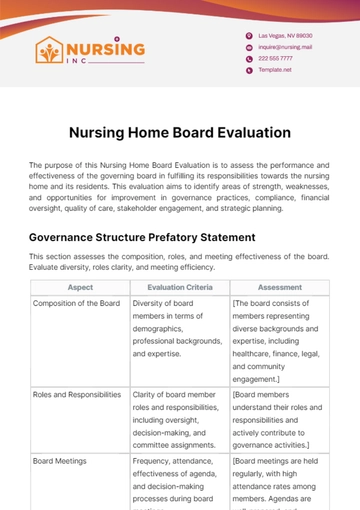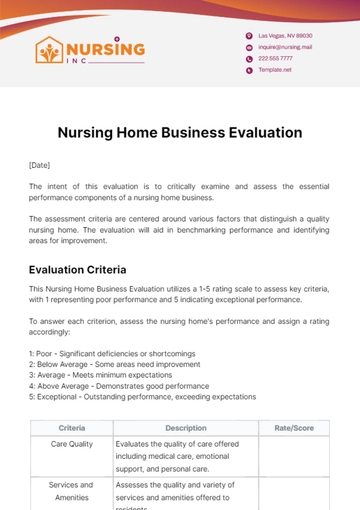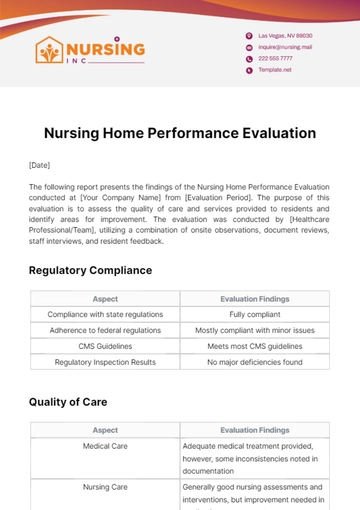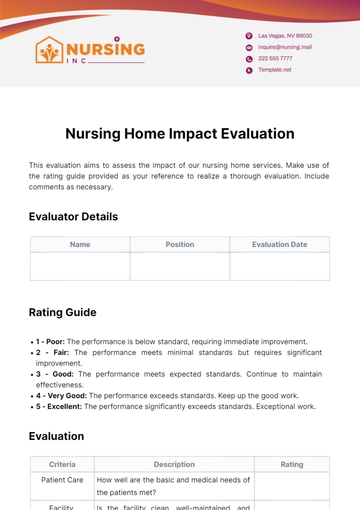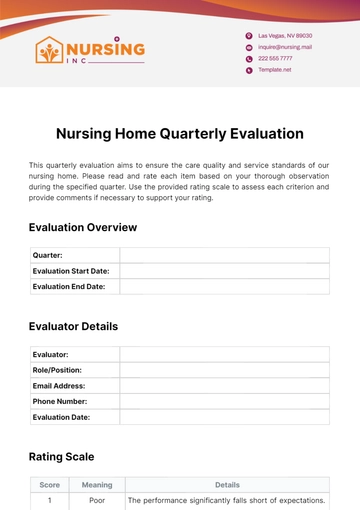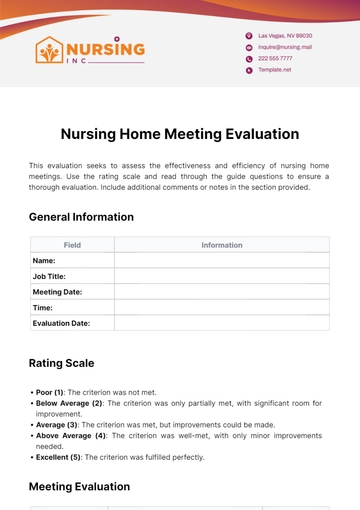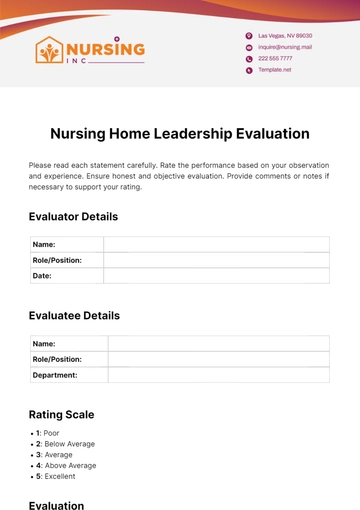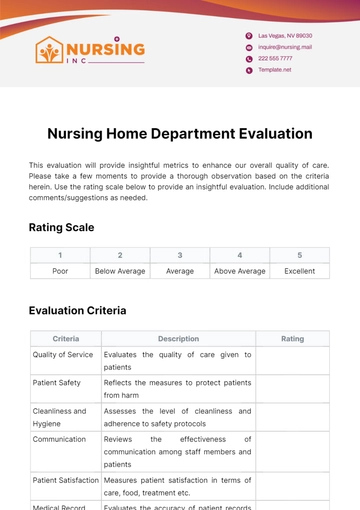Free Pediatric Physical Therapy Evaluation
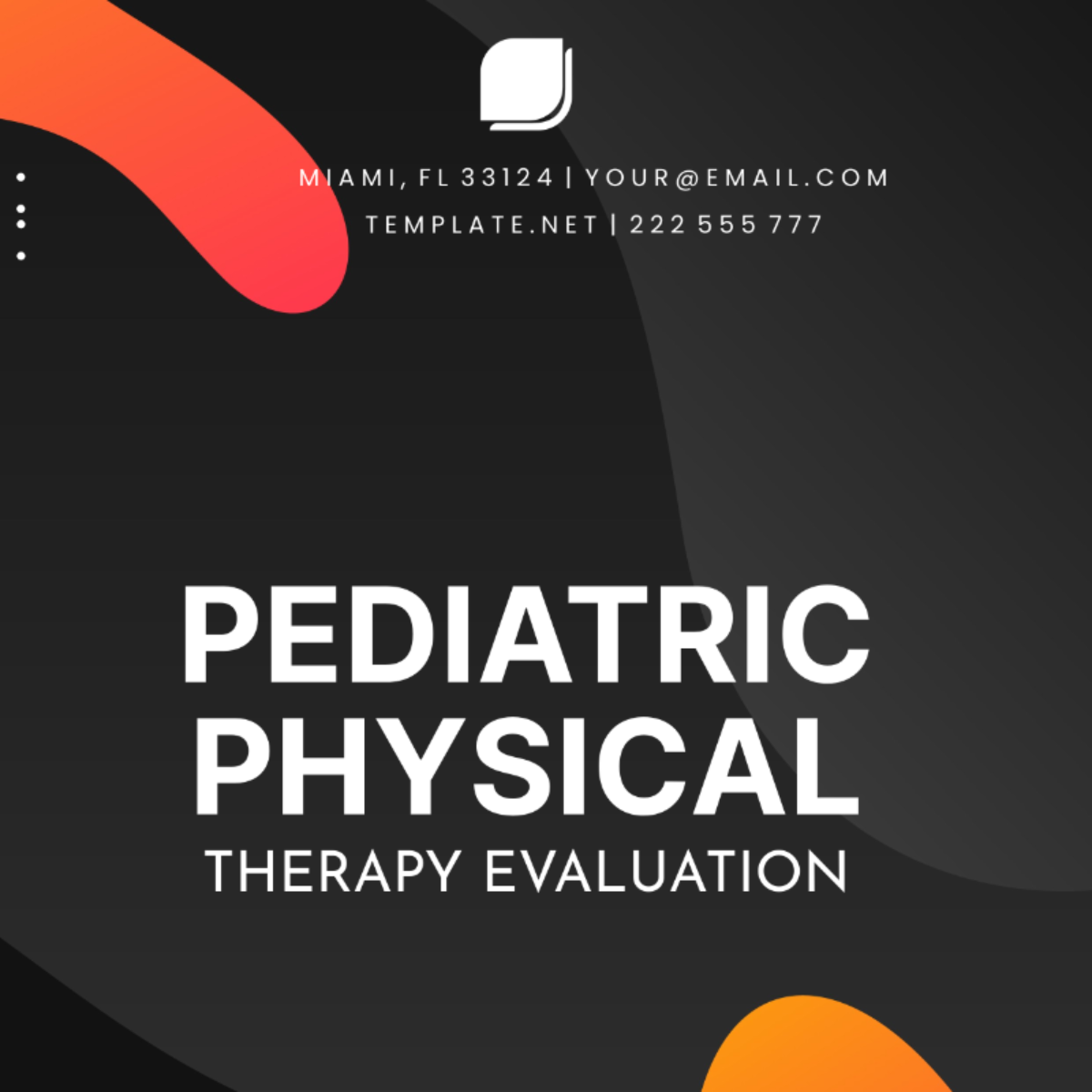
[Your Company Name]
Date:[Date]
Introduction:
This Pediatric Physical Therapy Evaluation aims to assess and diagnose motor delays or impairments in infants, toddlers, children, and adolescents. The evaluation is designed to provide a comprehensive understanding of the individual's motor skills, functional abilities, and developmental milestones. By utilizing this evaluation form, we can tailor interventions and treatments to address specific needs and promote optimal physical development and independence.
Background:
Pediatric physical therapy focuses on promoting independence, improving motor skills, and enhancing the overall quality of life for children with motor delays or impairments. Early identification and intervention are crucial in addressing these challenges and facilitating optimal development. This evaluation form serves as a structured tool for pediatric physical therapists to systematically assess and diagnose motor delays or impairments across different age groups, guiding the development of personalized treatment plans.
Patient Information:
Name: |
Age: |
Gender: |
Date of Birth: |
Contact Information: |
Referring Physician: |
Parent/Guardian Name: |
Observation/Measurement Scale:
0: Unable to perform task or movement.
1: Performs task or movement with significant difficulty or requires extensive assistance.
2: Performs task or movement with mild difficulty or requires minimal assistance.
3: Performs task or movement independently and effectively.
Evaluation Table:
Assessment Criteria | Description | Observation/Measurement |
|---|---|---|
Gross Motor Skills | Assessment of fundamental motor skills such as crawling, walking, running, jumping, and climbing. | |
Fine Motor Skills | Evaluation of hand-eye coordination, grasping, manipulation of objects, and precision tasks. | |
Balance and Coordination | Assessment of static and dynamic balance, coordination of movements, and postural control. | |
Strength and Endurance | Measurement of muscle strength, endurance, and fatigue resistance across different muscle groups. | |
Range of Motion | Evaluation of joint flexibility, mobility, and range of motion in various body parts. | |
Sensory Integration | Examination of sensory processing abilities, including tactile, proprioceptive, vestibular, and visual processing. | |
Functional Mobility | Assessment of functional mobility skills, including sitting, standing, walking, transitioning between positions, and navigating obstacles. | |
Activities of Daily Living (ADLs) | Analysis of the child's ability to perform age-appropriate activities of daily living independently or with assistance. | |
Social and Emotional Development | Observation of social interactions, emotional regulation, and participation in play activities. |
Comments/Feedback:
Please use this space to provide any additional comments, observations, or feedback regarding the evaluation process or the individual's motor development.
Comments and Feedback |
|---|
- 100% Customizable, free editor
- Access 1 Million+ Templates, photo’s & graphics
- Download or share as a template
- Click and replace photos, graphics, text, backgrounds
- Resize, crop, AI write & more
- Access advanced editor
Discover the ultimate Pediatric Physical Therapy Evaluation Template on Template.net! Crafted for efficiency, this editable and customizable tool streamlines assessments for pediatric patients. Seamlessly adjust content in our Ai Editor Tool to meet your clinic's unique needs. Elevate your practice with comprehensive evaluations tailored to every child's journey toward optimal health and mobility.
